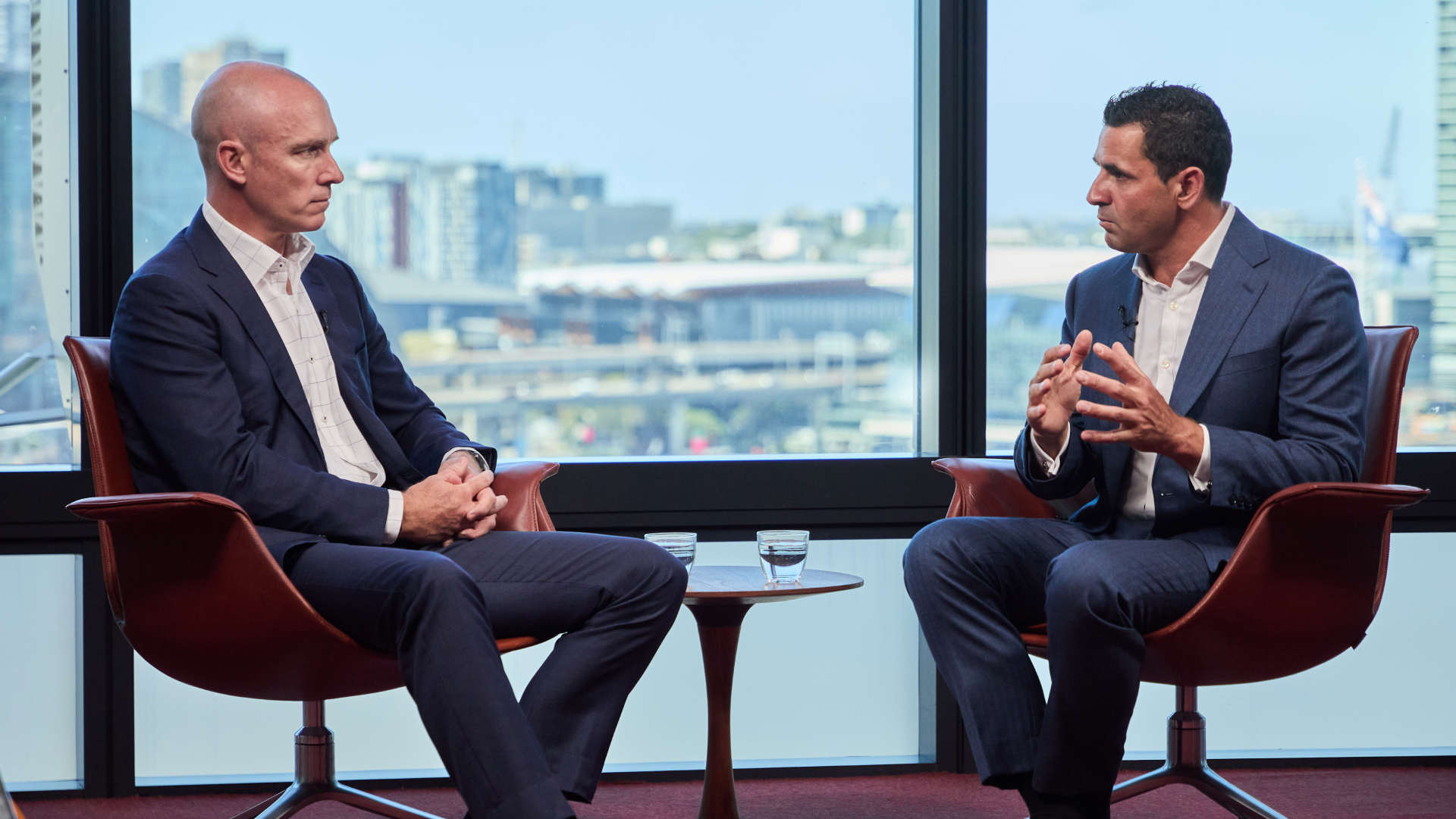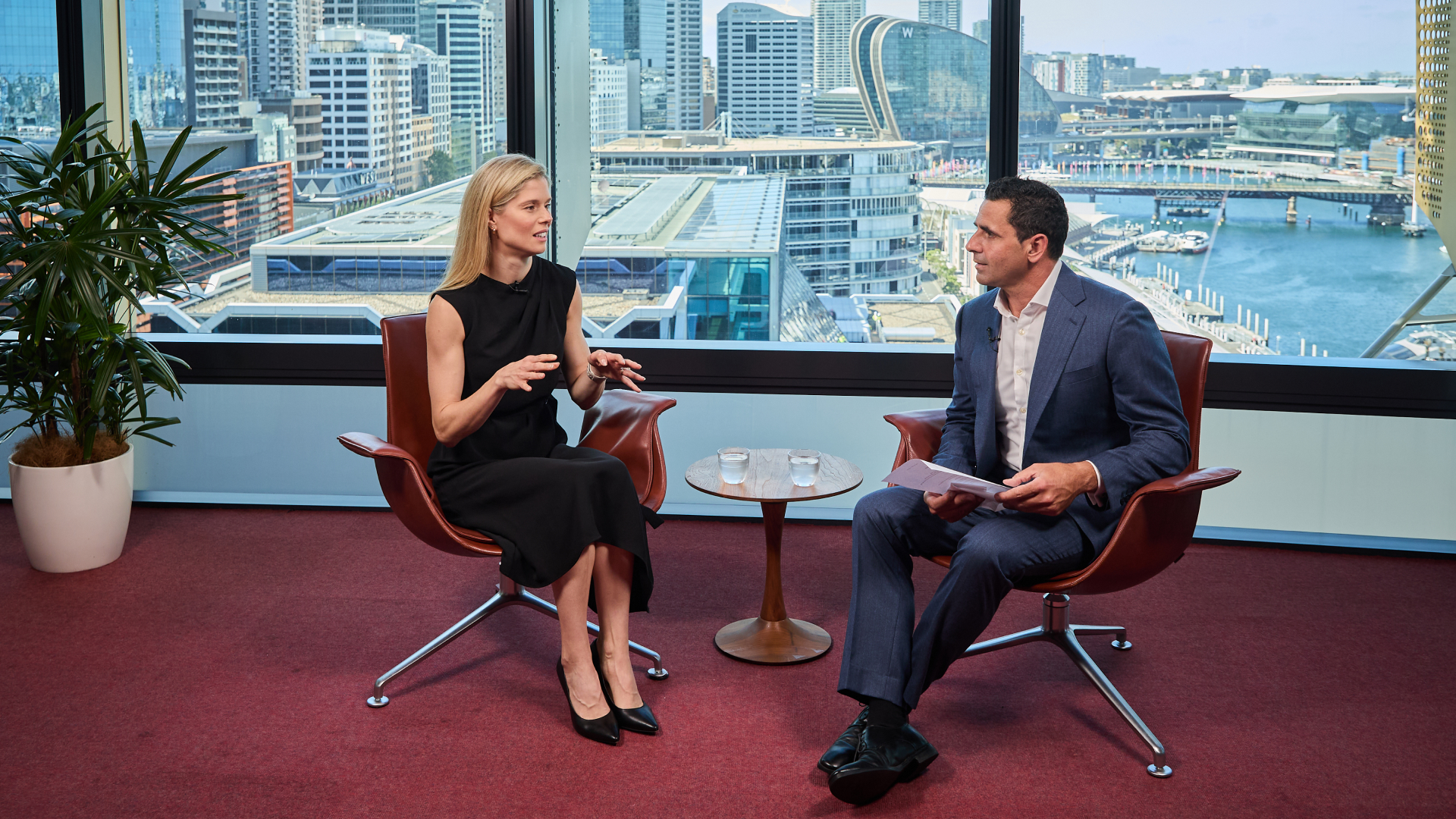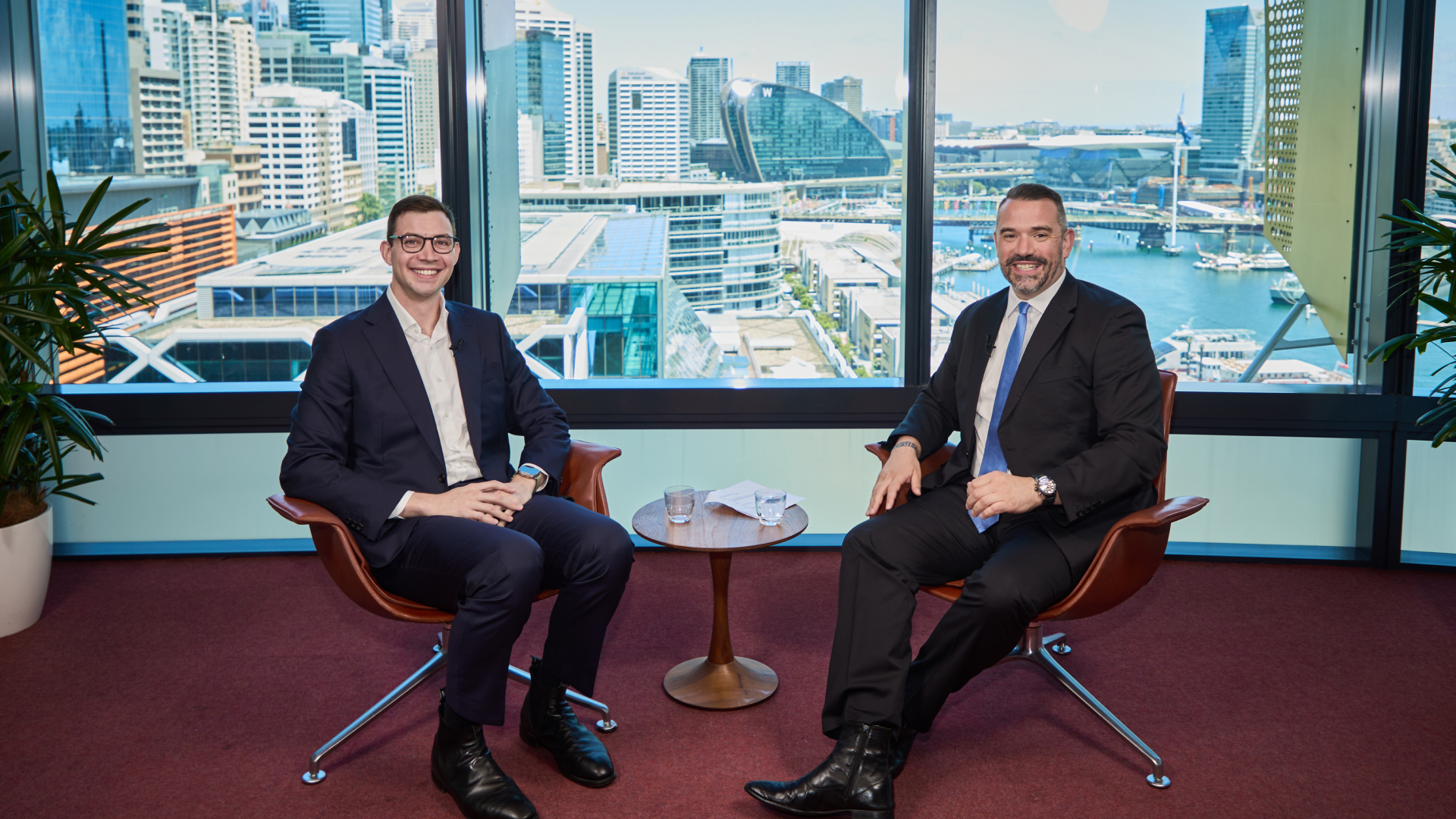Caution! 11 stocks on the ‘avoid’ list for 2025
You can watch the video by clicking the player, listen to the podcast, or read an edited transcript below. These interviews were filmed on Tuesday, 10 December 2024.
Everyone is hunting for the next big winner in the stock market, but sometimes it pays to go back to basics. Where better place to start than by drawing on the wisdom of the Oracle of Omaha, Warren Buffett?
Buffett is famously quoted as saying his first rule of investing is "never lose money". After all, compounding your capital is much easier when starting from a higher base. It is equally simple for those interested in his second rule - "never forget rule number one".
There are always plenty of investors willing to give their views on which investments look good, but hearing about stocks to sell or at least avoid is less common.
Looking through the nominations in the wire below, a few things stand out. Many of the stocks named have had incredible runs in 2024 and have benefitted from hot themes, changes in regulation and the prospect of big wins with binary outcomes. Some of the success will no doubt have been the result of good management. It almost always is when share prices are heading north!
It's also evident that many of these stocks have loyal supporters who believe in the vision of an enigmatic founder. Whilst Tesla isn't on this list, it is probably one of the most outstanding examples of a widowmaker trade for short sellers, and Elon Musk has consistently defied the doubters.
The final point is that while our guests do note the quality of a number of the businesses, valuation often becomes the barrier. Buffett, the world's greatest investor, attained this status by being ruthlessly disciplined about the price he was willing to pay for a stock and equally disciplined when it came to selling. Buffett has been aggressively offloading his Apple shares despite its ubiquitous presence in our daily lives.
Having already named their growth picks, we've asked our guests to nominate the stocks they're avoiding in 2025. You can access their responses in the video or podcast above or by reading the edited transcript below.
Our featured fund managers include (in order of appearance):
- Jessica Farr-Jones Regal Funds Management
- Elise Kennedy, Schroders
- Nick Guidera, Eley Griffiths Group
- Todd Warren, Tribeca Investment Partners
- Sam Ruiz, T. Rowe Price
- Brittany Isakka, Spheria Asset Management
- James Barker, Ellerston Capital
- Lucas Goode, IML
- Rachel Folder, Pendal Group
Note: We would like to thank the fund managers listed above for sharing their top ideas for 2025 in the spirit of the Outlook Series. All of the fund managers featured in this series run diversified portfolios and do not invest solely in the stocks mentioned below. This list is not, nor is it intended to be, a set of recommendations. Please do your own research and seek advice from a professional before making any investment decisions of your own. Past performance is not a reliable indicator of future returns.
Eagers Automotive (ASX:APE) and Peter Warren (ASX:PWR)
Jessica Farr-Jones: One segment of the market that we think there are both cyclical and structural reasons to be somewhat cautious heading into calendar '25 is the auto dealers. So these guys are grappling with what we've seen play out in other sectors in this post-COVID world. It probably started with the retailers and the e-Commerce retailers where we saw supply shortages during COVID and then enormous inventory blowouts on the other side, names like Kogan, which had to go through big periods of discounting. We've seen it then with chips and with companies like Audinate dealing with that supply issue, and now we're seeing it with the car dealerships. So these companies and the listed examples are AP Eagers and Peter Warren. They enjoyed a period of really inflated profit margins during COVID when there was a supply constrained environment.
But unfortunately we've come out the other side of that now. The car dealers are grappling with significant excess inventory holding far more days of inventory than they would like. And of course that comes with large bailment costs associated with holding that inventory. And we're also entering a period of weaker demand order cancellations, et cetera.
So you've got this unfortunate effect of weakening demand and excess inventory as the OEMs continue to push stock into the Australian market. That is really taking a hit on margins.
Our private channel checks suggest that the profit before tax margins were 4% at the start of the year. They've come back more recently to closer to 2%. So we're wary about the potential for profit downgrades in this current half in this sector and we think as well that it's too early to pick the bottom. So we are cautious about these conditions remaining into calendar '25.
That is the cyclical side, but of course there are structural concerns as well. We've got a lot of Chinese EVs that are going to come into the market next year. BYD has already done very well, but there's probably five to 10 other EV manufacturers that plan on entering the Aussie market. And we're not going to put tariffs here like the US or Europe does because we don't have a local car industry to protect. So we think this can create even more of a price war and potentially even more of a supply problem. So there's both cyclical and structural issues at the moment.
Lovisa (ASX:LOV)
Elise Kennedy: I don't think this one's an uncommon one, but Lovisa is one that causes concern for me. Why I say that is just you've got the key competition from Harli & Harpa coming through. And so for us, the key component there is that's started by the founder of Lovisa, and the store rollout that we're seeing coming through on that is really aggressive already in the stats that we're seeing at the point of recording. So for me as well though, you've got a change in management. The comps that we got at the AGM. Everything was slower when it came from Lovisa. So that to me creates a cause of concern.
IPH Limited (ASX:IPH)
Nick Guidera: Well, 12 months is a long time to stay clear of a stock completely, because if you're a motivated management team, you'll try and do what you can to turn things around. But I do have one for you. I want to talk about a stock called IPH. It's a former small cap darling. It's been listed over a decade. Really experienced management team. Really conservative business in patent and trademarks. They've done a good job in terms of growing from an Australian centric business into a global business. But a lot of that's been done by M&A over the last 10 years or so. And with small caps, it often comes back to organic growth. Can you demonstrate that organic growth? Because if you've got currency in your scrip to go and make an acquisition, anyone really can do it as long as the price makes sense and the multiple arbitrage works. As long as the vendors are willing to sell, you can make a deal happen.
It's often a lot harder to generate that organic growth and I think what you're seeing in this business is a lack of it, particularly in the more mature Australian business as they're losing market share to breakaway groups and people that are wanting to not necessarily have all their patent work with one particular large group. And then the final thing I'd say is if you're a business about acquisition, then you need to keep raising money. To be able to raise money and make these deals stack up, as you said, you need currency in your scrip. The last deal they did was broadly EPS neutral. The stock's off 15% from that point, which suggests that perhaps the market's not willing to give them that stock or give them that currency to then go and buy again.
Equinor (NYSE: EQNR)
Todd Warren: Well, we're a global investor, so I'm going to refer to a Norwegian gas producer called Equinor. They do produce some oil as well. Now, valuation wise, it doesn't look so bad. But this is a company where their production has essentially peaked. Their dividend yield has peaked. They're very heavily exposed to gas prices in Europe. Don't know, but should we see any treaty or peace in Ukraine, they're very heavily exposed to any new Russian gas molecules coming back to Europe. And we think for those reasons, the risks are a bit high and the fundamentals don't really stack up that well. So it's an avoid for us.

Alphabet (NASDAQ:GOOGL)
Sam Ruiz: So one of my goals here today was not to talk about AI because it's been all the headlines we've seen. The company I think everyone should avoid is a company we think is going to be disrupted by AI, and that's actually Google, or Alphabet effectively. Google makes their money from Google search. We go and search something online and we're inundated with 50 of these blue links and you probably click on 10 of them to figure out the answer. And you advertise at every stage of that journey. Well, AI has actually enabled through large language models the ability for smaller disruptors to come in with AI search engines. What that means is you don't get 50 blue links, you get the answer.
Now, there's two things that could happen. They could lose market share to some of these companies. Now, hot tip for you, Perplexity. If you haven't heard of it, go try it. It's a fantastic tool. Either they lose some market share or they're forced to compete by coming up with their own Perplexity or GPT Search equivalent. That means that if Google just has to feed you the answer now to avoid disruption from competitors, then they're only going to get you clicking once, not 15 times, and that's really bad for their advertising revenues.
Mesoblast (ASX:MSB)
Brittany Isakka: I'll go to our process because that's always the best way to do it. And this stock's actually up over about 400% in the last year. So I think it's one of the best performing small caps. And that's Mesoblast. The reason we don't like it, I will say I'm not a biotech expert, but the run-up in the share price has been on the back of a potential FDA approval, and this is the third time they're going for this approval. So third time lucky could be the charm, but the business is valued at about $2 billion and actually doesn't generate any earnings and it doesn't have a proper revenue stream either because all the products are still awaiting approval.
Whilst this could be the home run, I just think given the $2 billion market cap, some of that's already captured in the share price. And it's had a 19-year record of literally not generating earnings, [and has] blown a billion dollars of cash flow. So it's just a business we'd prefer to avoid.
Note: The following comments we provided by Brittany Isakka following the FDA approval of Mesoblast Ryoncil.
"Post recording the Livewire piece, MSB announced that they received FDA approval for its drug Ryoncil. The share price responded positively. The business has taken advantage of the bounce in the share price and announced an equity raise to help fund the commercial launch of the drug. Thus, shareholders are now in the process of tipping a further $250 million into the business, on top of the $1 billion that’s been raised since 2005. Whilst none of this precludes the possibility off eventual success, we are happy to stay on the sidelines with this one."

Mcmillan Shakespeare (ASX:MMS) and Smart Group (ASX:SIQ)
James Barker: So I'll give you two stocks in the one sector, and that's the novated leasing names McMillan Shakespeare, and Smart Group. So these businesses have been huge beneficiaries from a change in government policy. A few years ago, electric vehicles and plug-in hybrids were made exempt from fringe benefits taxes. And so what that meant was a huge uptick in demand for novated leasing products. These types of vehicles now are about 45% of all orders. And over this time, management haven't banked these profits. They've been reinvesting to service the increased level of demand.
If you look out over the next couple of years, this policy is up for review. In 2025, there'll be national vehicle efficiency standards brought in across the Australian fleet and therefore we think there's a risk that this might not be as important from a government perspective to keep this policy in place. So we like the businesses on a longer term view that are on reasonable valuations of 13 or 14 times. However, we want to see this change in demand play out before we become more positive.

NextDC (ASX:NXT)
Lucas Goode: Yeah, so it's funny, James, you mentioned the top theme of 2024 and it was clearly artificial intelligence. I mean, 2024 was all about investors jumping on board the AI hype train. Well, we think 2025 is going to be a bit more a case of show me the money. And the problem for data centre operators like NextDC is that they consume a hell of a lot of it and they don't produce any. We all know that the demand for compute is growing exponentially, but unfortunately, so is the amount of capital being thrown at this sector. Meanwhile, you've got a very concentrated and sophisticated customer base. So a lot of capital chasing these opportunities, sophisticated buyers, not really a recipe for great returns.
We see that in NextDC's results. So we think in 2024, this is a company that's being valued like a tech business, but really it's a real estate business. And we just don't think that a property developer earning less than a 1% return on capital should be trading at a multiple of book. And we think that maybe some of these AI adjacent players that aren't supported by fundamentals are going to come back down to earth in 2025.
Brainchip Holdings (ASX:BRN)
Rachel Folder: I think this is not just for 2025, but even more broadly, the way we look at stocks to invest in. We don't want to take too much risk in backing things that are too early and unproven. And I think Brainchip is probably one that fits into this category. It's a business that has a $450 million market cap, but no revenue. They haven't quite yet won a customer contract. So I think it's just you need to see runs on the board and you need to see some valuation support. At the same time, it's a business that does hardware and software that's related to AI. I find it quite difficult to understand. So I think you're better off investing in things that you can wrap your head around.
9 stocks mentioned
6 contributors mentioned



